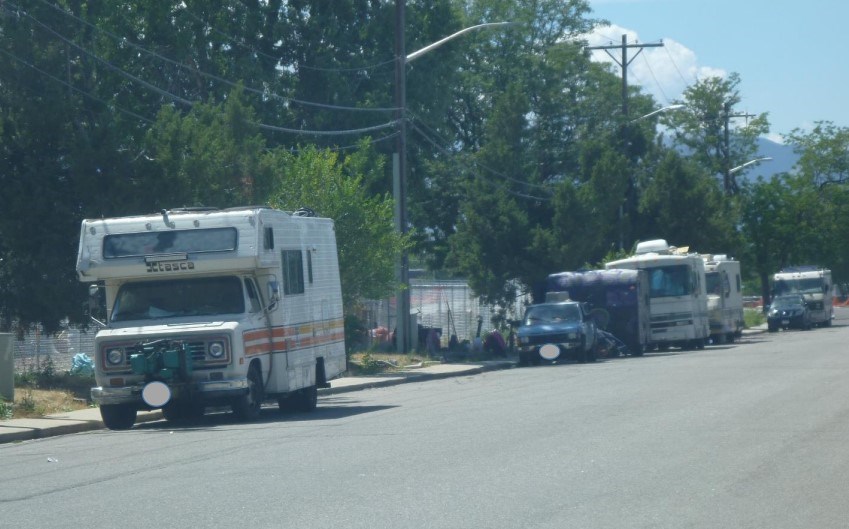Longmont is moving ahead with efforts to move recreational vehicle dwellers into more stable housing a month after the city’s ban on RV and sleeper vehicles from public streets and right-of-ways went into effect.
The new ordinance was passed in November by a majority of city council after hearing from police and code enforcement personnel that more junked RVs and sleeper vehicles were being abandoned on public streets. Police also said RV users were dumping waste from their vehicles into the city’s water systems, prompting health concerns.
Many RV inhabitants said they cannot afford more conventional housing and need their RVs for shelter while they work full-time jobs. In response, the city and Boulder County are spending $456,000 in one-time funds to help homeless individuals or RV users who want traditional housing, according to a city staff report.
The funding includes $25,000 for “bridge housing” — nightly motel stays or other temporary housing for RV users looking for standard housing. City council this week approved advancing the bridge housing effort, which will be available to people enrolled in the county’s Coordinated Entry program.
To be eligible for bridge housing, people must be working with housing-focused case managers to secure more permanent housing or waiting for their housing unit to become available, Karen Roney, Longmont’s Community Services director, said in an email.
Boulder County made the $25,000 available to Longmont as an alternative to people using the Boulder County Fairgrounds for bridge housing, Roney said.
The program is just now starting, so officials do not know yet how many will participate, she said.
Police, code enforcement personnel and workers from Homeless Outreach Providing Encouragement, or HOPE, and the Boulder Shelter for the Homeless all reach out to RV dwellers or others seeking bridge housing, Roney said.
Later this month, a three-person outreach team — funded by a $151,000 State Emergency Solutions Grant — will hit Longmont streets five days a week through the end of the year to find and help the homeless and RV users get stable shelter, she said.
“This team … will focus on building relationships and supporting people experiencing homlessness in connecting to the Coordinated Entry system,” a city staff report states. The team includes a homelessness services provider, a mental health professional and a peer advocate, someone who had previously been homeless, the staff report states.
Another $240,000 is being used by the Longmont Housing Authority for a housing voucher program for the homeless, the staff report states.
In reaction to a recent social media post, some criticized the city for not finding property to establish a temporary home for RVs. “It would … make it easier for social social workers etc. to get to them..why don’t we try to help with the problem instead of kicking it outside city limits?” one commenter wrote.
City Councilmember Aren Rodriguez has urged the city to use some funding to find a parcel for transitional RV use.
Another commenter defended the city in its efforts to protect its water from misuse by RV users.
“Dumping stuff into the wastewater plant could in effect kill off all the organism needed to treat the normal sewage, this would lead to essentially raw sewage being dumped into the river,” the commenter posted. “Want to talk about a waste of tax dollars, wait until the city is fined and charged for the cleanup?”



